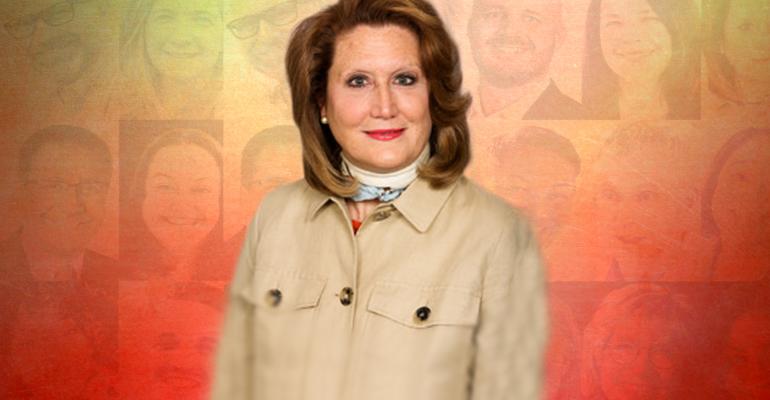MeetingsNet’s 2022 Changemakers list recognizes outstanding meeting professionals for their efforts to move their organizations and the industry forward in unique and positive ways. Find the full 2022 Changemakers list here.
Glenna Fulks
Chief Connecting Officer, Kite Meeting Management
For pushing sustainability issues to the forefront when making venue decisions and executing meetings and events
If you invite Glenna Fulks on a site visit, be prepared to answer questions about everything from the local use of electric vehicles to the venue’s food-waste management systems to the cleaning products in use. And she’s likely to ask about farm-to-table programs, hotel-managed herb gardens and beehives, and cutting down on plastics. In fact, she has developed an entirely new site-visit questionnaire to focus on sustainability on the hotels and venues she’s considering.
The response has been uniformly overwhelming, she says. “Everyone is doing something, and they are eager to tell you about their green initiatives.”
Fulks is so passionate about reducing the events industry’s carbon footprint that it’s the focus of her master’s thesis for her M.S. in Hospitality & Tourism Management at the University of Southern California. She’s researching how emerging technology can increase sustainability for group business. “My professor said, ‘Just because there isn’t much out there yet, that doesn’t mean you can’t start the trend of what sustainable group travel will look like in the future.’” Her goal? To help the industry reach the goal of net zero emissions by 2030.
In the meantime, she continues to introduce sustainability concepts to the clients she works with, who are usually surprised at what they can do to be more responsible without adding cost.
Food waste, which accounts for more than 50 percent of waste in the hospitality industry, is one of the many areas she targets. The most effective way to cut down on food waste, she says, is by making smart decisions when selecting, designing, and planning the meals. “There is always more food ordered than necessary, so I focus on ways to reasonably have enough food available, but not so much that the leftovers become an obvious waste,” Fulks says. “This often means sitting down with the chef and reducing or redesigning some of the food options.”
Working with local farmers keeps profits in the community, and it creates a more authentic and genuine experience for meeting attendees. For example, she says, “If I had a group that was going to hold a meeting in, or near Traverse City [Mich.] in July or August, I would sit down with the chef and ask what specialty dish he could create from the homegrown cherries. The Montmorency cherries have some of the highest levels of disease-fighting antioxidants available.”
Advice: Keep Asking Questions
“Never be afraid to ask questions in your circle of contacts, or to work with the venue and the food-and-beverage team,” she says. “You have no idea what you will learn unless you ask. And I have found that hotels are ready, eager, and willing to help bring about positive change.” And this goes far beyond food and beverage. She points to the difference you can make ordering promotional products made from sustainable materials—like bamboo notebooks or hemp t-shirts—then upcycling leftover swag by donating it to a local school or community center.
“As an industry, we need to think about the possibilities,” she says.
“Ask yourself, ‘What if’ and you will be shocked at what you come up with.”





